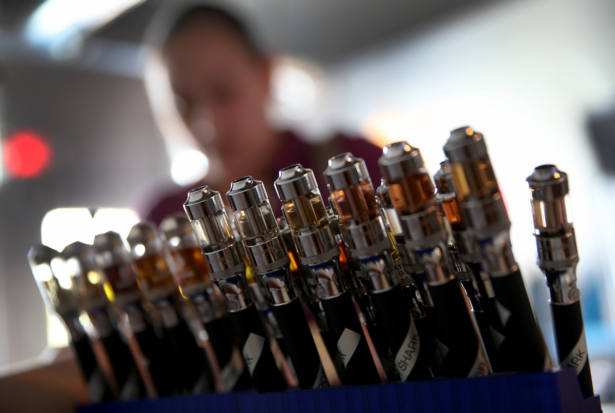The World Health Organization (WHO) on Thursday called for better measures to protect young people from substance use, as data gathered from teens in Europe, Central Asia, and Canada revealed a noticeable increase in the use of e-cigarettes and alcohol.
The WHO’s recommendations are based on its 2021/2022 Health Behaviour in School-aged Children (HBSC) study, a school-based survey carried out every four years in collaboration with the WHO’s European office, that documents the self-reported health behaviors of boys and girls aged 11, 13, and 15.
Contrary to the United States, where the use of alcohol is banned for anyone under 21, most other countries have lower legal drinking ages—typically 18, with some allowing supervised drinking from 16.
Still, the study showed “an escalating trend in alcohol abuse among youth,” with 57 percent of 15-year-olds having tried alcohol at least once, and 37 percent indicating having consumed alcohol in the past 30 days.
One in ten said they had experienced “significant drunkenness”—defined as being drunk at least twice in their lifetime.
“These findings highlight how available and normalized alcohol is,” the report stated, “showing the urgent need for better policy measures to protect children and young people.”
E-cigarettes are quickly gaining traction, with roughly a third of 15-year-olds having tried them at some point, and one out of five in the past 30 days.

Cannabis use has decreased slightly to 12 percent, down from 14 percent, the WHO said.
Interestingly, the study revealed that the disparity in substance use between boys and girls is rapidly closing, with girls equaling or even surpassing boys in rates of smoking, alcohol consumption, and e-cigarette use by the age of 15.
The HBSC survey also included an optional set of questions inquiring about the perceived impacts of the COVID-19 pandemic.
“More specifically, the mitigation measures put in place by countries and regions around the world to stop the spread of the virus, changed the way children and young people live their lives,” said WHO Regional Director for Europe Hans Henri P. Kluge, who further mentioned the war in Ukraine, migration issues, climate change threats, and economic and political instability.
“Global events like these inevitably have huge effects on young people,” he stated. “It is vital that we understand the impacts of all these issues on young people and identify what countries and regions can do to further promote adolescent health and positive health behaviors.”
To remedy the negative trends, the report suggested countries make greater efforts to reduce the attractiveness of substances like e-cigarettes and alcohol among adolescents.
Its proposed measures include tighter regulation of targeted advertising in mainstream media and online environments, better monitoring of substance use, and stricter enforcement of existing laws.
The report specifically warned against the rising popularity of e-cigarettes, a worldwide phenomenon.
“Research shows that young people are very sensitive to substances such as nicotine because their brains are still developing, making it easier for them to get hooked,” Mr. Kluge said.
Substance use has long been associated with a variety of negative consequences, the study stated, potentially leading to mental and physical health problems, poorer academic outcomes, violent behavior, unsafe sexual encounters, accidents, and over time reduced cognitive, emotional, and social development.


